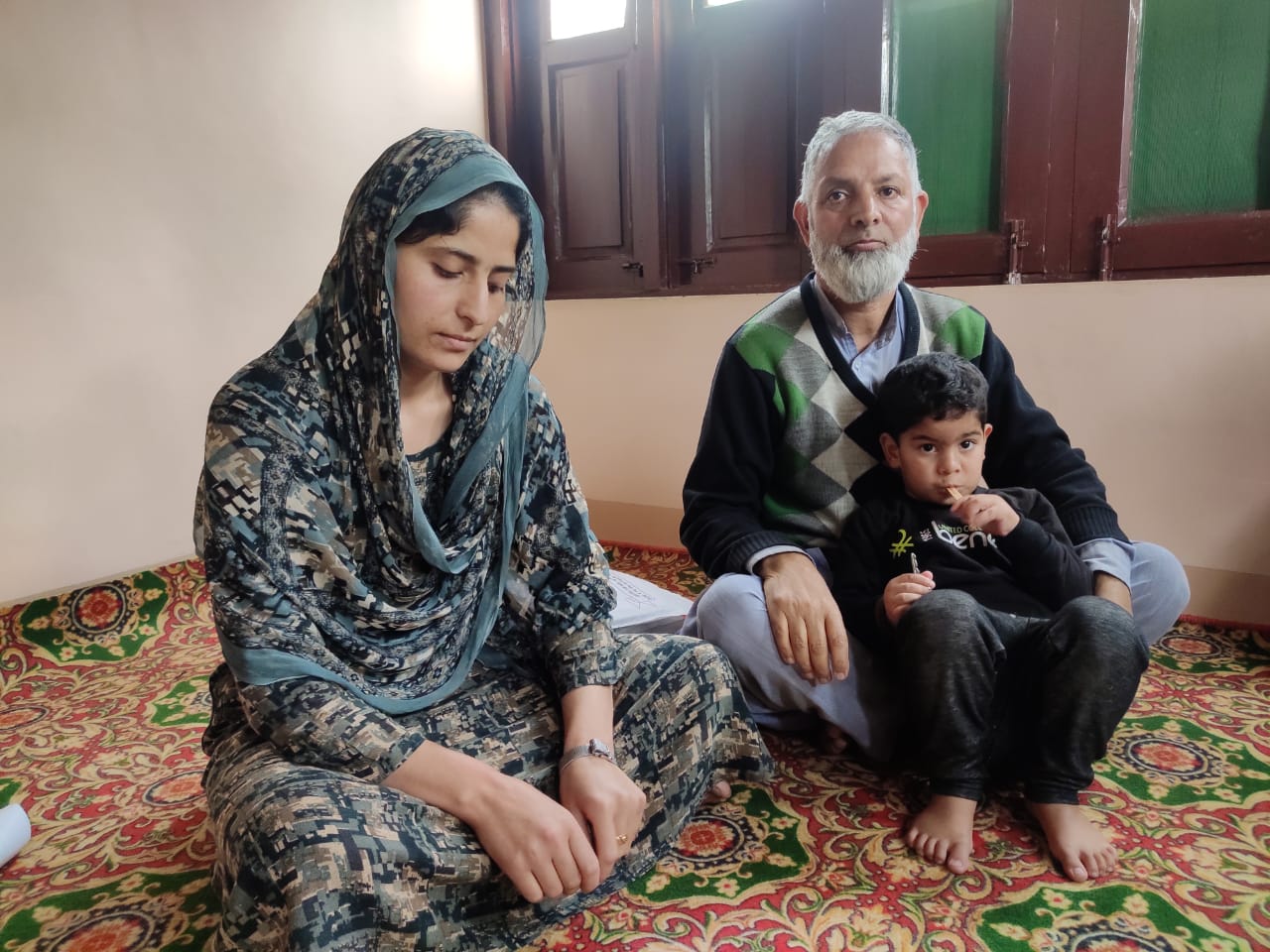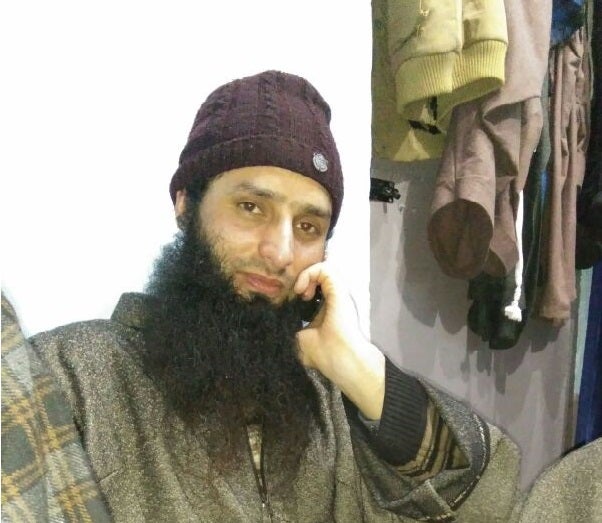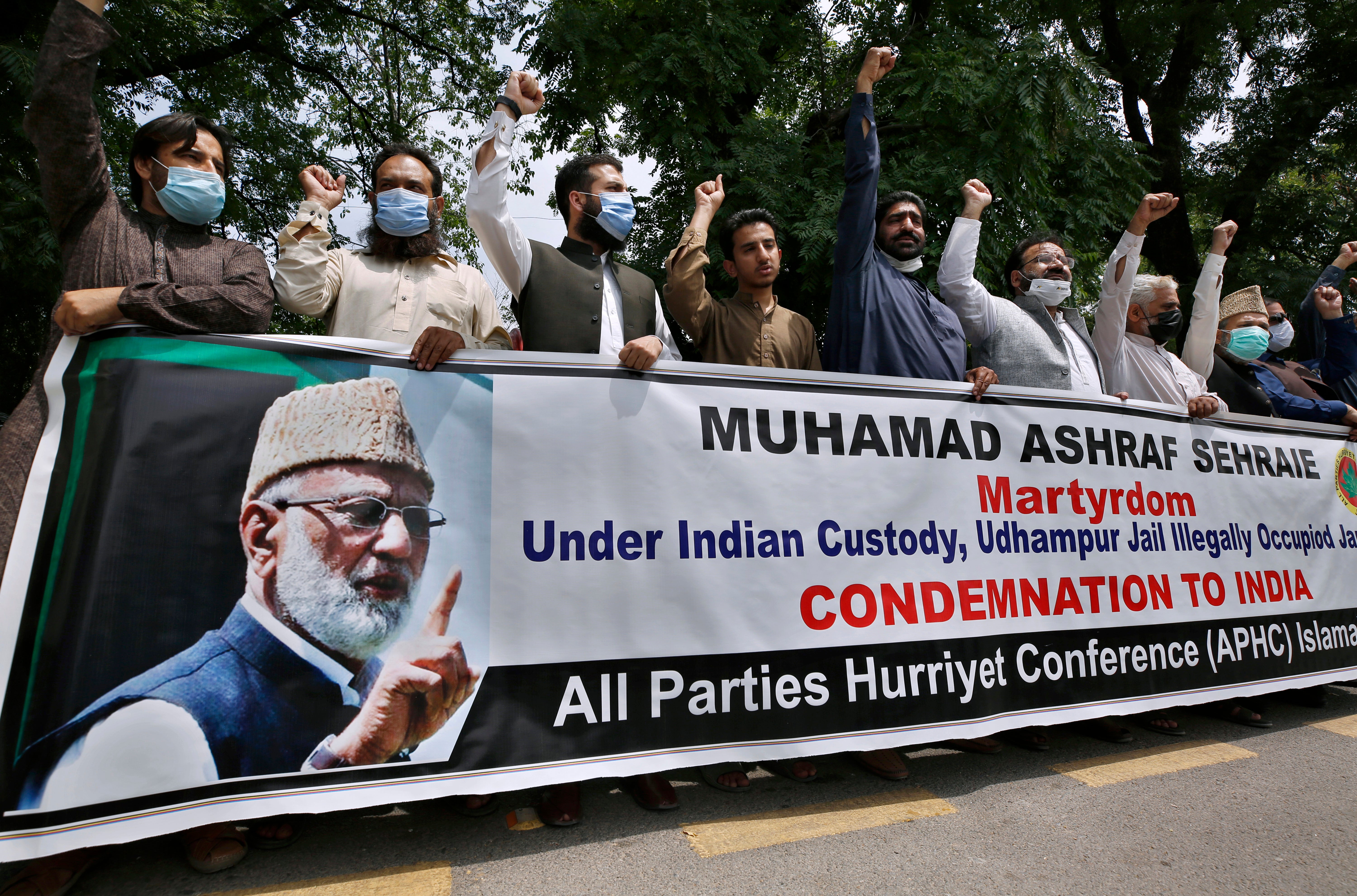Calls for India to release Kashmiri political prisoners during devastating second Covid wave
Kashmiris detained in the aftermath of India’s decision to strip the region of its special status have been moved across the country, making access for families and lawyers all-but impossible. Namita Singh reports in the final part of our series from Kashmir on the growing demands for them to be released


Your support helps us to tell the story
From reproductive rights to climate change to Big Tech, The Independent is on the ground when the story is developing. Whether it's investigating the financials of Elon Musk's pro-Trump PAC or producing our latest documentary, 'The A Word', which shines a light on the American women fighting for reproductive rights, we know how important it is to parse out the facts from the messaging.
At such a critical moment in US history, we need reporters on the ground. Your donation allows us to keep sending journalists to speak to both sides of the story.
The Independent is trusted by Americans across the entire political spectrum. And unlike many other quality news outlets, we choose not to lock Americans out of our reporting and analysis with paywalls. We believe quality journalism should be available to everyone, paid for by those who can afford it.
Your support makes all the difference.Abdul Hameed Mir, 45, was detained by the authorities around the same time when Indian prime minister Narendra Modi’s government unilaterally announced changes in the constitutional and legal status of the state of Jammu and Kashmir, effectively wiping out the semi-autonomy enjoyed by the region for generations.
Picked up from his house in the Kupwara district of Kashmir, Mr Mir had been in prison for more than 18 months without charge when he lost his mother. He had moved a bail application in March to carry out the last rites. It was denied.
“His mother kept waiting for nearly two years to get a single glance of her only son,” his brother-in-law, Sajjad Dar, told The Independent. “She was not granted that in life. And was denied that dignity even in death.
“She was buried by the villagers when it should have been her son doing the last rites. Pouring the final soil.”
Riyaz Ahmed Dar, 33, has been in prison since December 2013. At first, he was arrested during an investigation into the murder of a police officer in Kashmir’s Chadoora. But even after his acquittal in 2017, he remains in custody.
“We have not spoken with him since the Eid of May 2020,” says his father Ghulam Rasool Dar, 57. Raising concerns about the spread of coronavirus in jails, he says he has no idea what the conditions are like where his son is being kept. “Every time we call the jail authorities, they tell us he is doing alright but never really bring him on the phone.”

Riyaz had spent the first two years of his detention in Kot Balwal jail of Jammu before being moved to Karnal jail in the neighbouring state of Haryana. His transfer to a jail outside of the state overlapped with the government’s decision to revoke the special status of Kashmir.
Read more from the Covid in Kashmir series:
Part 1: The doctors ordered to battle Covid in silence
Part 2: Kashmir’s ‘oxygen gag’ prevents good samaritans from helping breathless citizens
Since then, he has met neither his family nor his lawyer, alleges his father. “We were not even told when he was being moved,” says Ghulam. “It was when someone went to the Jammu jail to visit an inmate, booked under the same charge as him, that they told us Riyaz had been transferred.”
Mir and Dar are both held under the infamous Jammu and Kashmir Public Safety Act (PSA). They are among 7,357 Kashmiris who were arrested before and immediately after the Modi government moved to revoke the autonomy of Jammu and Kashmir previously guaranteed under Article 370 of the Indian constitution. Of these, about 396 were detained under the PSA.
The contentious law allows the detention of a person without a warrant, trial or court hearing for a maximum period of two years. With reports of the coronavirus pandemic spreading through the inmates, their families have now joined those demanding their release on parole, at least until the pandemic is under control.
“Every day we hear of people getting infected with coronavirus inside the jail. It is so difficult to get healthcare [even] outside... god knows the condition in which they are keeping him there,” says Riyaz’s father. “If nothing else, can they at least transfer him to jail within Jammu and Kashmir? It has been so long since we last saw him.”
Riyaz’s lawyer, Kaiser Ali, said that his plea to quash the PSA charge has been pending before the court since August. “Every time our date of hearing gets pushed to the next date. It has been at the last stage for quite some time, but due to Covid the courts are not able to take up the matter regularly. And the delay has only increased.”
Termed political prisoners by rights groups, demands for the release and transfer of those booked under the PSA have been mounting in the valley especially since the death of the separatist leader Ashraf Sehrai earlier in May. The 78-year-old was the president of Tehreek-e-Hurriyat, a pro-independence group in Kashmir, and had been at the forefront of calls for Delhi to relinquish its rule over the disputed territory.

Detained under the PSA, Mr Sehrai had been lodged in Udhampur jail since 12 July 2020, before recently being shifted to a hospital in Jammu after he complained of breathlessness. He tested positive for coronavirus posthumously.
His 17-year-old grandson Ishaq Khalid Khan calls it a case of “custodial killing”, adding that his grandfather had multiple ailments and was dependent on regular medical attention but was deliberately denied the care he needed.
“Inside the jail [the jail authorities] did not provide him with medicines on their own. We had to provide them from here. And they did not provide him with a medical check-up, either. That is why he died,” he told The Independent. “During his final days, he had been telling us that he is not getting the medical care including the medicines that we used to provide after permission from the court. Had he received the care that he needed, he would have definitely been saved.”
“In today’s India, one pays [the] price with his life for dissent,” wrote former chief minister Mehbooba Mufti, grieving Mr Sehrai’s death. “Like him, countless political prisoners and other detainees from J&K continue to be jailed purely for their ideologies and thought process,” she wrote on Twitter as she urged the prime minister to release the “detainees on parole so that they return home to their families”.
The demands were echoed by the Jammu and Kashmir High Court Bar Association, which urged the government to transfer these prisoners “to the nearest jails in Kashmir valley”.
Prisoners’ rights groups are hopeful for progress after the Supreme Court this month ordered the decongestion of prisons across the country amid the unprecedented second wave of Covid cases, but the concerns in Kashmir about the alleged misuse of the contentious PSA remain.
“As recently as August 2018, a person booked under PSA could not have been detained in a jail outside the territory of Jammu and Kashmir,” explains criminal lawyer Mir Urfi.
“But the amendment allowed their detention outside of the state, anywhere in India. A lot of them have now been shifted to jails in Agra, Varanasi, Haryana,” she says. “PSA is being misused because we never really meet the client. If the detainee is in a prison in Varanasi, how will they meet their lawyer in Kashmir? And especially during lockdowns like these, when the movement is so restricted.
“To keep him away from his home is also a punishment. They have no idea about their family and vice versa. They are allowed to speak with them only once a month,” she says. “And due to covid, physical meetings have been stopped. So, I would have known the health status of my client only if his family or I had an access to my client. But [now] they are lodged in a jail in another state.”
Back at his house in Chadoora, Riyaz Dar’s father says he doesn’t hold out much hope of the administration listening to their pleas. “If the law had taken its course, then my son would not have been in jail this long. So, I don’t know about the government or the law. I know only that Allah will listen to us.”
Join our commenting forum
Join thought-provoking conversations, follow other Independent readers and see their replies
Comments